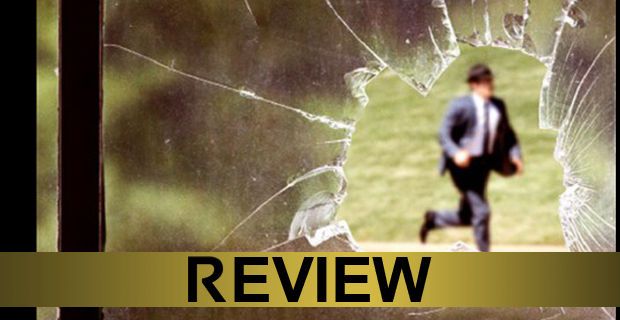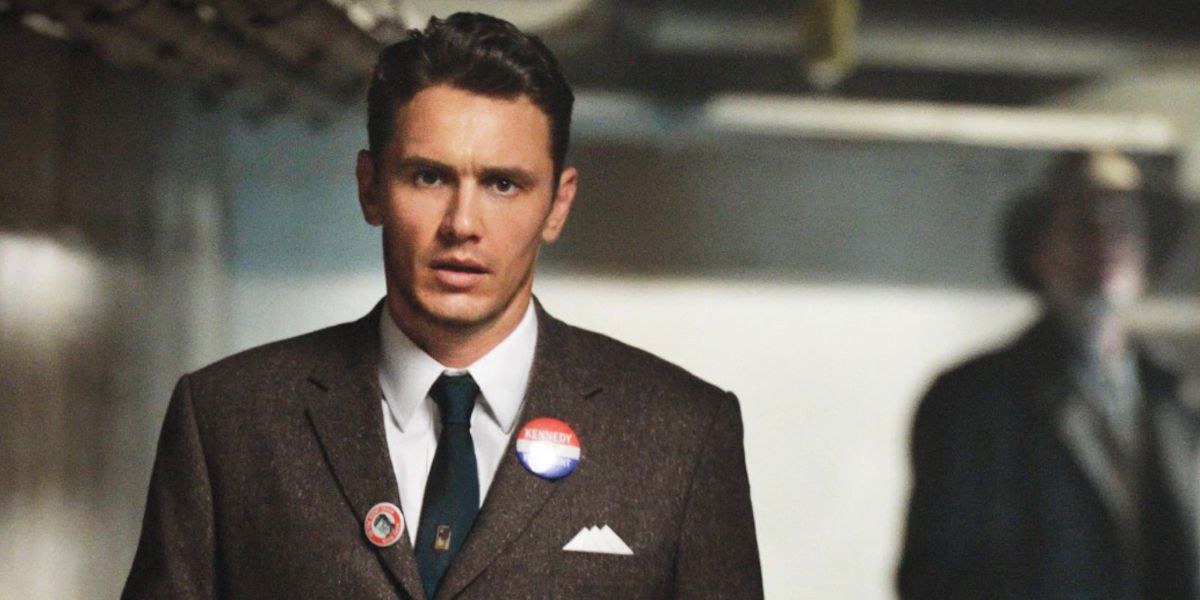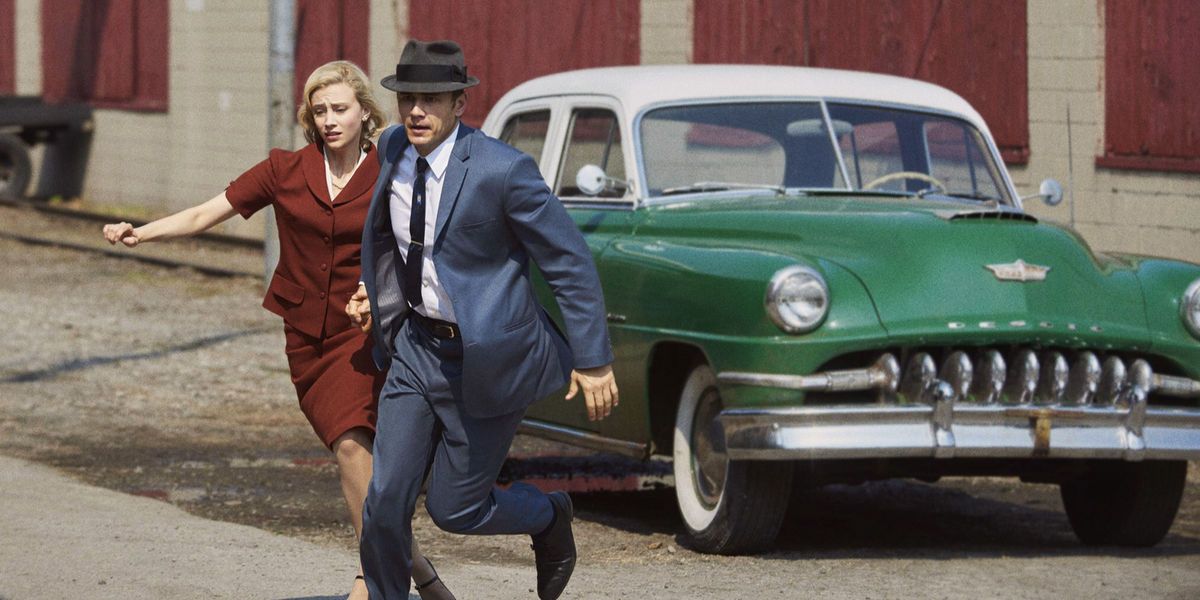[This is a review of the 11.22.63 miniseries premiere. There will be SPOILERS.]
-
Not that adaptations of Stephen King's novels have ever been in short supply, but after the debacle that was CBS' poorly conceived and even more poorly executed series based on Under the Dome, it is safe to say the author was deserving of a more proficient and presentable television adaptation of his work. And, as a glossy miniseries debuting on TV-friendly streaming service Hulu, starring the likes of James Franco, Chris Cooper, and up-and-comer Sarah Gadon – not to mention hailing from producer J.J. Abrams – proficient and presentable is precisely what 11.22.63 aims to be. But first and foremost, the 90-minute premiere – directed by Last King of Scotland director Kevin Macdonald – aims to be an entertaining romp through time, as Franco's goateed, recently divorced high school English teacher Jake Epping steps into the past to take on another man's mission in an effort to prevent the assassination of President John F. Kennedy.
There is something telling about the 90-minute premiere that doesn't have much to do with offering the audience a more substantial runtime as a way of legitimizing 11.22.63 as a serious kind of adaptation. Rather the 90-minute runtime has more to do with getting the necessary exposition out of the way, so that the remainder of the premiere, 'Down the Rabbit Hole,' can also offer the audience a glimpse of what's to come – which is, of course, a fun journey with potentially high stakes that, despite a few questionable early detours, makes the most out of its science fiction-meets-historical fiction premise of a man out of time saving the president.
The first 30 minutes of 'Down the Rabbit Hole' are devoted to setting up the premise of the series, and it is clearly a daunting task the premiere is amazingly well suited for. While waiting for Jake, his faithful customer and lover of hamburgers unknowingly imported from 1960, to finalize his divorce, Chris Cooper's Al Templeton, the proprietor of a local greasy spoon that itself looks like a relic of a bygone era, steps into a closet in the diner's backroom and spends the next few years attempting to prevent Kennedy's assassination. Templeton emerges two minutes later, having aged considerably and diagnosed with terminal cancer.
Naturally, asking anyone to explain the particulars of what has happened and what needs to happen via anything sounding remotely like actual conversational dialogue is something of a tough sell, especially when it also requires Franco to adorn an agog facial expression and tell Al how suddenly old and weary he looks. To its credit, though, 11.22.63 knows the difference between having a good premise and having to explain that premise as a means of putting the plot in motion. So, rather than dwell on the particulars or try to make something viable out of some very silly sounding claptrap, the premiere opts to treat it like an unpleasant but necessary procedure. The series' opening is upfront and almost apologetic about the exposition, but it agrees to barrel through it and, like a parent with a child on the receiving end of a doctor's needle, promises the audience a treat for being so brave and soldiering on.
That treat, then, comes in the form of a committed performance from Franco and a commitment on behalf of the miniseries itself to take the narrative seriously, while still having fun with the basic premise and potential logical paradoxes of time travel. For a series like this to work, it can either wink at the camera and offer up a sense that the performers are aware of their being smarter than the material, or it can go in whole hog. 11.22.63 chooses the latter. One of the ways the series accomplishes this is in the way it sells the potential ramifications of altering the past, but also in the story's unwavering devotion to the idea of humanity at the center of its premise.
As much as the story is about a man stepping through a time portal in a diner's closet to prevent the president's assassination, and as much as it revels in exploring the Oliver Stone-level conspiratorial fringe of Kennedy's death, 11.22.63 has a deeply moral center driving the narrative. It is, at heart, an anti-war story that wrestles (in a sometimes simplistic manner) with the ethics of taking a life to save a life or, in the case of Jake's primary objective and, certainly, his secondary one involving the murdered Dunning clan in Kentucky, potentially taking a life to save and improve the lives of many. There is a great deal of certainty placed in Al's theories that if Kennedy was to be saved the escalation of the Vietnam War – and Al's participation in it – would never have happened. That certainty, then, bleeds into Jakes decision to right the wrong of what happened to Harry Dunning (Leon Rippy), which works to underline the series' exploration of morality and choice, but also strangely destabilizes the narrative's propulsion at an early point in the series.
Pulling the brake to explore a tangent that underlines one of the major themes and ideas of the story is admittedly a risky thing to do so early in the miniseries. Although the reasons behind it are basically sound – put Jake in a moral quandary wherein he can potentially effect positive change for someone he cares about and ostensibly demonstrates his ability to carry out his primary objective – the implementation and timing of the digression effectively grinds the A-plot to a halt.
Although the premiere and the miniseries as a whole are an entertaining, worthwhile endeavor for King fans and non-fans alike, the inconsistency or lopsidedness of the first episode (and some of the later ones) in terms of focus, keeps the story from being as propulsive and enticing as it otherwise could be. What's frustrating about this particular problem is that many of the asides the story is "distracted" by actually serve Franco's character and afford him an opportunity to do some really charming, interesting work. If only the writers (including King) and editors could have found a better, more streamlined way to integrate those elements, then the discussion around this miniseries might have to do with it potentially being one of the better adaptations of King's work period.
Still, despite its occasional clumsiness, 11.22.63 is an entertaining effort from Hulu and one that will hopefully lead to bigger and better things from the streaming service in the future.
-
11.22.63 continues next Monday with 'The Kill Floor.'
Photos: Hulu



